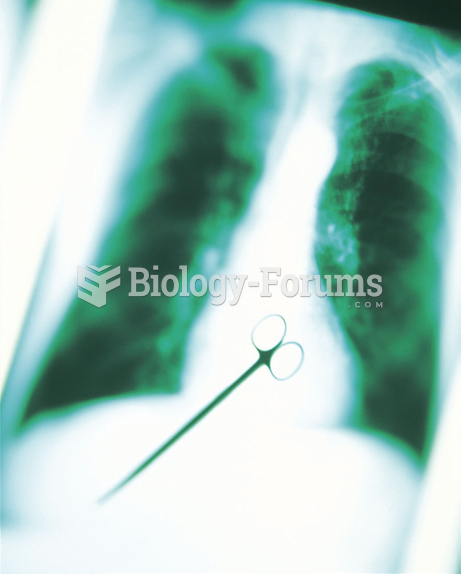|
|
|
Carbamazepine can interfere with the results of home pregnancy tests. If you are taking carbamazepine, do not try to test for pregnancy at home.
An identified risk factor for osteoporosis is the intake of excessive amounts of vitamin A. Dietary intake of approximately double the recommended daily amount of vitamin A, by women, has been shown to reduce bone mineral density and increase the chances for hip fractures compared with women who consumed the recommended daily amount (or less) of vitamin A.
The training of an anesthesiologist typically requires four years of college, 4 years of medical school, 1 year of internship, and 3 years of residency.
Medication errors are three times higher among children and infants than with adults.
Pregnant women usually experience a heightened sense of smell beginning late in the first trimester. Some experts call this the body's way of protecting a pregnant woman from foods that are unsafe for the fetus.
 The vulva, sagittal section illustrating how the labia majora and labia minora cover and protect the
The vulva, sagittal section illustrating how the labia majora and labia minora cover and protect the
 The “Big Four” world leaders meet at the Hotel Crillon in Paris, 1919. From left to right (front row
The “Big Four” world leaders meet at the Hotel Crillon in Paris, 1919. From left to right (front row





